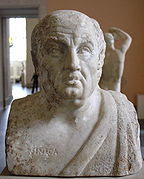 Perhaps you’ve read about the pastor who plans on publicly burning a Quran on September 11, 2010. Unfortunately, he’s received much media attention, including his 15 minutes of fame on CNN.
Perhaps you’ve read about the pastor who plans on publicly burning a Quran on September 11, 2010. Unfortunately, he’s received much media attention, including his 15 minutes of fame on CNN.
I wish, if the pastor really felt the need to burn a Quran, he would have done so privately because his pyromanic plan neither advances the cause of the kingdom of God nor impedes the advance of Islam. What it does is reveal something about the pastor.
Does the pastor think any Muslim will reject Islam because he burned their book? I don’t think he’s that dumb. So, he’s not doing this for Muslims.
Book burning in the Bible happened when the Ephesians, once converted to Chrisitianity, rejected their pagan practices and brought their books together to burn, demonstrating their renunciation of their former belief. (Acts 19:18-19). In other words, Biblical book-burning–if there is such a thing–is for the benefit of the person who owns the book.
I don’t think the pastor is a Muslim or has recently been one, so I must conclude he is not toasting the Muslim text as a public manifestation of his decision to break with a former belief.
This must mean he is flaming the Quran for other Christians or non-Islamic, non-Christians. But what benefit does he think non-Christians will get from that? If they are non-Christians, they will not have a better opinion of Christianity as a result of the pastor’s conflagration.
And I can’t imagine he thinks he is benefiting Christians by scorching the Muslim script. The only thing I can think is he is trying to inflame them against Islam and Muslims. If this is the point, and regardless, it will probably be the result, then the pastor’s incendiary impulse is seriously misguided.
The best explanation of terrorism is that it’s “a response to powerlessness.” In other words, those who feel powerlessness to obtain what they desire within the normal and accepted means of society resort to terrorism.
Burning a Quran I suspect arises from a similar impulse. Feeling impotent to respond in any other way, the pastor responds with a public warming of the Islamic writ.
I’m not calling the pastor a terrorist or suggesting what he is doing is terrorism. I do suspect both acts arise from the same feeling of powerlessness. And while both may give their instigator a momentary feeling of power, both are equally ineffective to achieve their desired results.
What do you think? Is what he’s planning to do a good idea? GS
 The first century Stoic writer, Seneca, made this comment about Christians: “In the midst of the flame and the rack, I have seen men not only not groan, that is little; not only not complain, that is little; not only not answer back, that is too little; but I have seen them smile, and smile with a good heart.” Seneca was not a Christian, but he was watching Christians and he noticed a difference.
The first century Stoic writer, Seneca, made this comment about Christians: “In the midst of the flame and the rack, I have seen men not only not groan, that is little; not only not complain, that is little; not only not answer back, that is too little; but I have seen them smile, and smile with a good heart.” Seneca was not a Christian, but he was watching Christians and he noticed a difference.



